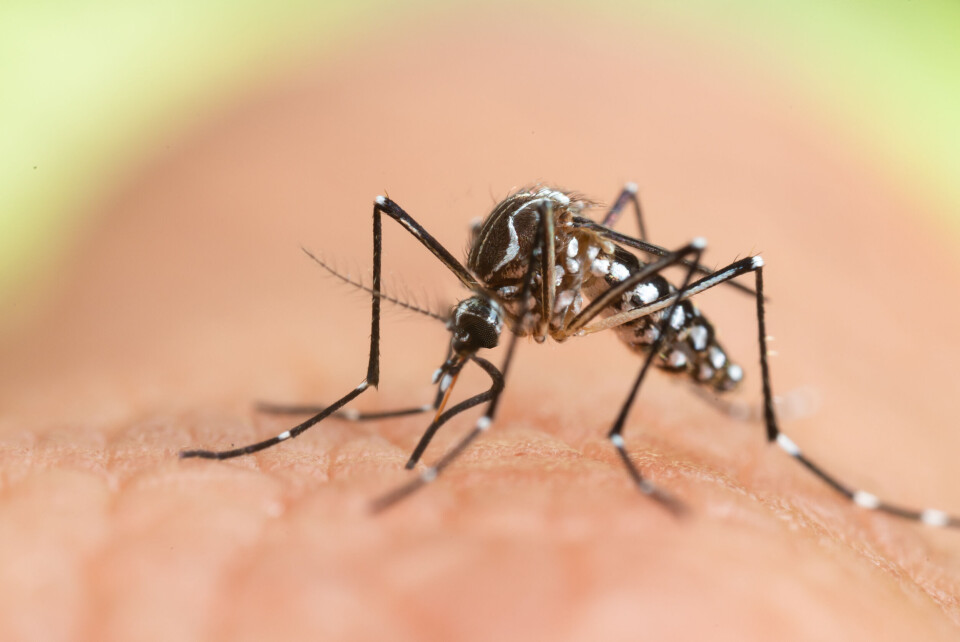-
France’s Favourite Village 2026 shortlist announced
You can vote for your favourite until early March
-
Eurostar to cut St Pancras boarding times by 30 minutes
Station authorities want passenger experience to be ‘less like an airport’ as it targets major growth
-
Speed cameras to verify car insurance in severe cases
Penalties for speeding more than 50 kph over the limit have also been stepped up
Rare case of ‘indigenous’ dengue confirmed in south of France
The infected person had not travelled to an at-risk country in the two weeks prior to becoming infected and is thought to have been bitten at home

An ‘indigenous’ case of dengue fever has been confirmed in France, with the infected person having been bitten and contaminated by a tiger mosquito while at home in Perpignan, Pyrénées-Orientales.
It is still rare for someone to be contaminated in France without having travelled, in the previous two weeks, to areas in which the virus is considered endemic (such as the Caribbean, Central and South America, or Southeast Asia).
The affected person in Perpignan had not travelled to an at-risk zone in the previous two weeks before infection. This is what makes the infection ‘indigenous’, as it has come from within France.
Health authorities ARS Occitanie and Santé publique France have now launched an inquiry into the case, including investigations in the infected person’s residential area – between avenue de Grande-Bretagne and the Pépinière park.
Officials are going door-to-door with local residents to raise awareness and share advice to follow in case they begin to feel symptoms - or have already had symptoms - that could be a sign of dengue, within the past three months.
Dengue can cause severe fever, muscle pain, headaches, throat pain, and breathing difficulties.
The ARS has also asked the pest control and de-mosquito company Altopictus to treat the area in a bid to reduce or eliminate the tiger mosquito population.
Tiger mosquitoes are known vectors of diseases such as dengue fever, as well as chikungunya and zika. They breed and grow faster in warm weather, and are recognisable by their black body with white markings.
They were first reported in France in the Alpes-Maritimes in 2004, and have since spread across most of the country.
In May this year, 64 departments across France were placed on high alert for their presence. They are usually active between May and November.
Read more: 64 French departments on red alert for tiger mosquitoes
If you are bitten and later develop joint or muscle pain, headaches, a rash, irritated eyes or a fever, you are advised to consult a doctor as soon as possible.
Residents are also advised to empty containers that hold stagnant water, such as gutters, toys and plant pots – or fill these with sand to allow watering but no standing water – as stagnant water encourages the insects to lay eggs and gather.
Related articles
Mosquitoes make their return in France: Tips on keeping them away
Mosquitoes in France: A scientist's advice for keeping them away
France fighting dangerous tiger mosquito
























